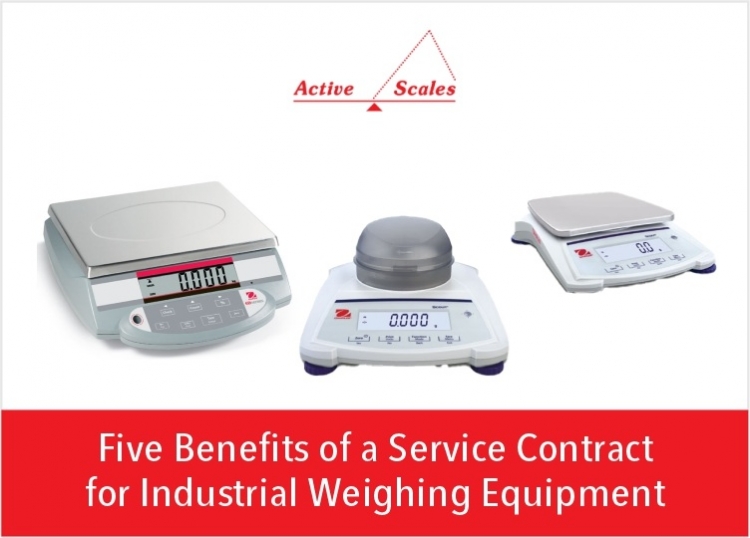 Image Designed by Freepik
Image Designed by Freepik
Five Benefits of a Service Contract for Industrial Weighing Equipment
Industrial weighing scales play a crucial role in various sectors, ensuring accurate measurements and contributing to operational efficiency. However, like any machinery, these scales require regular maintenance to function optimally. A service contract for industrial weighing equipment emerges as a valuable alternative, offering a range of benefits that can positively impact businesses. In this blog, we will explore five key advantages of having a service contract for your industrial scales, emphasizing the importance of proactive maintenance.
1. Extended Lifespan of Industrial Weighing Equipment
Industrial weighing scales are substantial investments for businesses, and ensuring their longevity is paramount for optimizing the return on this investment. A service contract plays a crucial role in extending the lifespan of industrial weighing equipment by implementing a proactive maintenance strategy. Regular inspections conducted as part of the service contract allow technicians to identify wear and tear, potential issues, or signs of degradation.
Addressing these concerns promptly through adjustments, repairs, or part replacements prevents them from evolving into more severe problems that could compromise the overall functionality of the scales.
2. Optimized Performance and Accuracy
Precision is a cornerstone of industrial operations, and the accuracy of weighing scales is paramount in maintaining this precision. Industrial weighing equipment, over time, may experience drift and deviations that can compromise the reliability of measurements. A service contract's key contribution to optimized performance lies in its commitment to regular calibration and testing.
Through these processes, technicians identify and rectify any deviations from accurate measurements, ensuring that the industrial weighing scales consistently meet or exceed industry standards. This meticulous attention to accuracy not only aligns with regulatory requirements but also empowers businesses to confidently deliver products with precise weights, avoiding potential financial losses and maintaining the quality of their goods.
3. Cost-Efficient Maintenance
Investing in a service contract for
industrial bench scale may seem like an additional expense, but it is a strategic investment that pays off in the long run. The fixed, predictable costs of a service contract allow businesses to budget effectively for maintenance expenses. Moreover, proactive maintenance reduces the likelihood of major breakdowns, eliminating the need for expensive emergency repairs. This cost-efficient approach contributes to better financial planning and stability for businesses relying on industrial scales.
This not only protects against sudden financial burdens but also contributes to long-term cost savings by extending the lifespan of industrial weighing equipment and avoiding the need for costly replacements. In essence, a service contract transforms maintenance into a strategic investment, fostering financial stability and operational resilience for businesses relying on industrial scales.
4. Reduced Downtime and Increased Productivity
One of the significant challenges industries face is the costly downtime resulting from unexpected breakdowns of crucial equipment like industrial weighing scales. A service contract plays a pivotal role in mitigating this risk by implementing regular maintenance schedules. Technicians conduct thorough inspections, identify potential issues, and perform necessary repairs before they escalate into major problems. This proactive approach minimizes the chances of unplanned breakdowns, translating directly to reduced downtime.
Businesses can maintain a continuous and uninterrupted workflow, meeting production deadlines and avoiding the financial setbacks associated with operational halts. This proactive approach translates to reduced downtime and increased operational continuity, allowing businesses to meet deadlines and maintain a competitive edge in their particular industries.
5. Compliance with Industry Regulations
Many weighing scale industries are subject to strict rules and regulations governing the use of weighing equipment. Compliance with these specifications is not only a legal requisite but also essential for maintaining the credibility of your business. A service contract includes routine inspections and adjustments to ensure that your industrial weighing scales adhere to industry standards. This not only safeguards your business from potential legal issues but also demonstrates a commitment to quality and reliability, enhancing your reputation among clients and partners. Some of the compliances related to this industry are:
- ISO 9001 (Quality Management) and ISO 14001 (Environmental Management)
- Legal Metrology Act
- National Institute of Standards and Technology (NIST) Standards
- International Organization of Legal Metrology (OIML) Standards
- Trade Approval and Certification
- Environmental Regulations
- Health and Safety Standards
- CE Marking (European Conformity)
Conclusion
In conclusion, a service contract for industrial weighing equipment is a proactive strategy that offers a plethora of benefits. From extending the lifespan of the equipment and optimizing performance to ensuring cost-efficient maintenance, reducing downtime, and guaranteeing compliance with industry regulations, the advantages are numerous. Businesses that prioritize the health of their
industrial weighing scales through service contracts are better positioned to achieve operational excellence, enhance productivity, and stay ahead in today's competitive industrial landscape.
 Image Designed by Freepik
Image Designed by Freepik